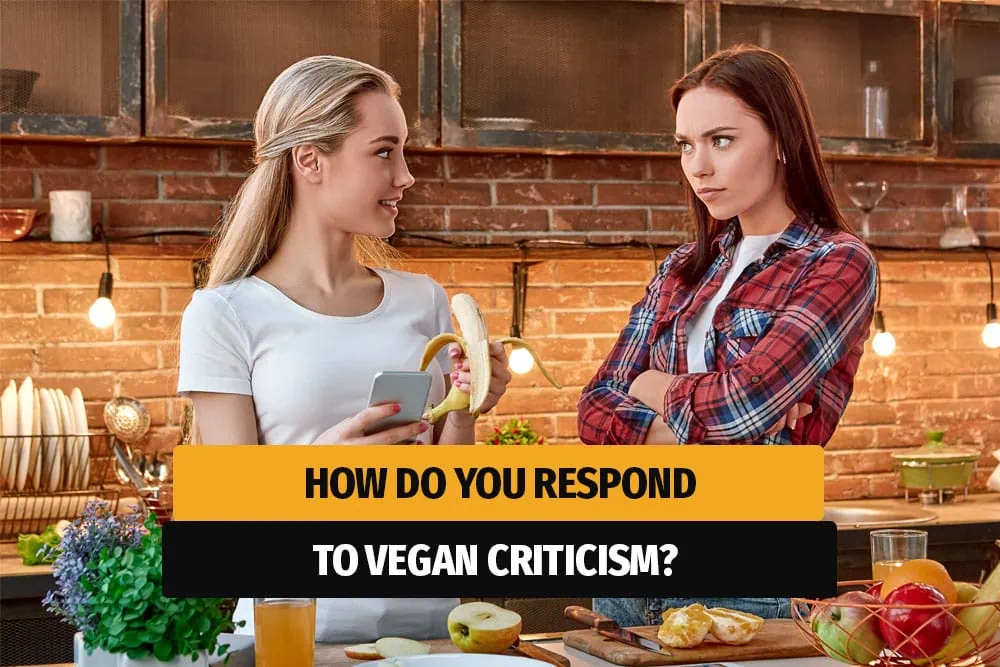The decision to adopt a vegan lifestyle is one that is gaining momentum in today’s society, as more and more individuals are becoming aware of the impact of their dietary choices on the environment, animal welfare, and personal health. However, transitioning to a vegan diet is not without its challenges. Beyond the nutritional aspect, navigating the social dynamics of being vegan can be a daunting task, as it often requires changing long-held habits and beliefs and facing criticism and resistance from those who do not share the same values. In this article, we will explore the challenges and rewards of going vegan, from the societal pressures and social situations that may arise to the benefits of embracing a compassionate and sustainable lifestyle. By understanding and addressing these social dynamics, we can better equip ourselves to successfully navigate the journey towards a vegan lifestyle and reap the many rewards it has to offer. Whether you are a seasoned vegan or just starting your journey, this article aims to shed light on the importance of social dynamics and provide guidance on how to handle them with grace and confidence.
Managing family meals as vegans
Incorporating a vegan lifestyle within the context of family meals can present certain challenges, but with careful planning and open communication, it can also lead to a more inclusive and health-conscious dining experience. One effective approach is to involve the entire family in meal planning and preparation, allowing everyone to contribute their ideas and preferences. This not only fosters a sense of shared responsibility but also ensures that everyone’s dietary needs are met. Moreover, exploring creative and flavorful vegan recipes together can be an exciting way to introduce new and delicious plant-based alternatives to traditional dishes. By actively engaging with family members and promoting an understanding of the benefits of veganism, it becomes easier to navigate the social dynamics of family meals and foster a supportive and inclusive environment for all.

Navigating social gatherings with ease
In addition to family meals, navigating social gatherings as a vegan can also present its own set of challenges. However, with a proactive and informed approach, it is possible to enjoy these events while staying true to your dietary choices. Offering insights into the social aspects of adopting a vegan lifestyle, including dealing with family meals, social gatherings, and common misconceptions, can provide valuable strategies for successfully navigating these situations. It is important to communicate your dietary preferences to the host or organizer in advance, highlighting any restrictions or preferences you may have. By doing so, you are not only ensuring that there are suitable options available to you but also creating an opportunity for education and understanding among those in attendance. Additionally, being prepared by bringing a vegan dish to share or suggesting vegan-friendly restaurants as potential venues can help alleviate any potential awkwardness or discomfort. Embracing an open-minded and positive attitude can foster productive conversations and potentially inspire others to explore plant-based options themselves. With thoughtful planning and effective communication, one can navigate social gatherings with ease while staying true to their vegan lifestyle.
Dealing with common misconceptions gracefully
While it is unfortunate that misconceptions about veganism can sometimes arise, it is important to address them gracefully and with patience. One common misconception is that a vegan diet lacks essential nutrients, such as protein or iron. When faced with this misconception, it can be helpful to calmly explain that a well-planned vegan diet can provide all the necessary nutrients, and even offer examples of plant-based protein sources like legumes, tofu, and quinoa. Another misconception is that vegans are limited in their food choices and must sacrifice taste and variety. In response, it can be beneficial to showcase the wide range of delicious and diverse vegan options available, from vibrant salads to flavorful curries and decadent dairy-free desserts. By approaching these misconceptions with kindness and providing accurate information, we can help dispel myths and promote a better understanding of the vegan lifestyle.
Sharing your vegan journey confidently

Offering insights into the social aspects of adopting a vegan lifestyle, including dealing with family meals, social gatherings, and common misconceptions, can empower individuals to share their vegan journey confidently. When it comes to family meals, open and honest communication can be key. Explaining your reasons for adopting a vegan lifestyle and expressing your gratitude for their support can help foster understanding and collaboration in creating meals that accommodate everyone’s dietary preferences. Similarly, navigating social gatherings may require some proactive planning. Offering to bring a vegan dish to share can ensure there are options available for you and others to enjoy. Additionally, being prepared to answer questions or address concerns about veganism can help dispel any misconceptions and educate others about the benefits of a plant-based lifestyle. By approaching these situations with confidence and a willingness to engage in respectful dialogue, individuals can inspire others to be more open-minded and supportive of their vegan journey.
Communicating your dietary choices politely
In order to effectively communicate your dietary choices politely, it is important to approach conversations with respect and understanding. When discussing your dietary preferences with others, it can be helpful to focus on the positive aspects of your decision, such as the health benefits or environmental impact of a plant-based lifestyle. Rather than criticizing or judging others for their choices, emphasize that your decision to adopt a vegan lifestyle is a personal one and not a reflection on their own dietary habits.
It is also important to be prepared for questions or concerns that may arise. Educate yourself on the nutritional aspects of veganism and be prepared to address any misconceptions that may arise. Providing information on the variety and abundance of vegan food options available can help alleviate concerns about restricted choices.
In social situations, such as family gatherings or dining out with friends, it may be helpful to plan ahead. Research restaurants with vegan options or suggest vegan-friendly recipes that can be enjoyed by everyone. By being inclusive and considerate of others’ preferences, you can foster a positive and supportive environment for your dietary choices.
Ultimately, the goal is to engage in open and respectful dialogue that promotes understanding and acceptance of your dietary choices. By leading by example, expressing gratitude for support, and offering information in a non-judgmental manner, you can effectively communicate your dietary choices politely while navigating the social dynamics of adopting a vegan lifestyle.
Responding to criticism with kindness
When faced with criticism or negative comments about your vegan lifestyle, responding with kindness can be a powerful tool for promoting understanding and fostering positive conversations. Instead of becoming defensive or engaging in arguments, take a moment to pause and consider the intentions behind the criticism. Responding with empathy and respect can help to diffuse tension and open up a dialogue.
Acknowledge the concerns or opinions of others and validate their perspective, even if you may not agree. By demonstrating an understanding of their viewpoint, you can create a space for mutual respect and productive discussion. It is important to remember that everyone is entitled to their own opinions and beliefs, and it is not necessary to convince or convert others to your way of thinking.
Additionally, offering personal stories and experiences can be a powerful way to showcase the benefits and positive impact of a vegan lifestyle. Sharing your own journey and the reasons behind your choice can help others to better understand your perspective and may even inspire them to consider alternative dietary choices.
By responding to criticism with kindness, you have the opportunity to lead by example and promote a more compassionate and understanding approach to navigating social dynamics as a vegan.

Finding support in like-minded individuals
Finding support in like-minded individuals is a crucial aspect of navigating the social dynamics of adopting a vegan lifestyle. Connecting with others who share your beliefs and values can provide a sense of community and validation, especially when facing challenges in social settings. Whether through local vegan meetups, online forums, or social media groups, these platforms offer a space to share experiences, seek advice, and find encouragement. Surrounding yourself with individuals who understand your choices can help alleviate feelings of isolation and provide a support system to lean on. Additionally, these communities often offer insights into the social aspects of adopting a vegan lifestyle, including dealing with family meals, social gatherings, and common misconceptions. Engaging with like-minded individuals not only provides a sense of belonging but also equips you with practical strategies to navigate social situations with confidence and grace.
Embracing new food experiences together
Exploring new culinary experiences together can be an exciting and rewarding aspect of embracing a vegan lifestyle. Trying out new plant-based recipes and dishes can not only expand your palate but also strengthen your bond with loved ones. Whether it’s experimenting with vibrant and creative flavors or exploring diverse cuisines, embracing new food experiences together can be a fun and educational journey. By involving family and friends in the process, you can create a supportive and inclusive environment that encourages open-mindedness and fosters understanding. Sharing delicious vegan meals and introducing loved ones to the wide variety of plant-based options can spark curiosity and inspire others to consider incorporating more compassionate choices into their own lives. By embracing new food experiences together, you can create lasting memories and deepen your connections while advocating for a more sustainable and compassionate world.
Explaining the reasons behind veganism
Offering insights into the social aspects of adopting a vegan lifestyle, including dealing with family meals, social gatherings, and common misconceptions, is crucial in understanding the reasons behind veganism. Veganism is a lifestyle choice that goes beyond dietary preferences and encompasses ethical, environmental, and health considerations. Individuals choose to adopt a vegan lifestyle based on a variety of reasons, such as promoting animal welfare, reducing their carbon footprint, and improving personal well-being. By abstaining from animal products, vegans aim to minimize the exploitation and suffering of animals, supporting a more compassionate and ethical approach to food consumption. Additionally, following a plant-based diet has been linked to various health benefits, including lower risks of heart disease, obesity, and certain types of cancer. Explaining these reasons behind veganism helps create a better understanding of its principles, fostering empathy, and encouraging others to consider the potential positive impacts of adopting a vegan lifestyle.
Celebrating the rewards of going vegan.
Celebrating the rewards of going vegan involves embracing the positive impacts it can have on various aspects of life. One of the most immediate rewards is experiencing improved health and vitality. A well-balanced vegan diet, rich in fruits, vegetables, whole grains, and plant-based proteins, provides an abundance of essential nutrients and antioxidants that can boost immune function, increase energy levels, and promote overall well-being. Moreover, adopting a vegan lifestyle allows individuals to align their actions with their values and contribute to a more sustainable planet. By choosing plant-based alternatives, vegans reduce their carbon footprint and conserve vital resources, such as water and land. Additionally, by supporting cruelty-free and eco-friendly products, vegans can be proud of their commitment to ethical and environmental sustainability. The rewards of going vegan extend beyond personal health, making a positive impact on animals, the environment, and global sustainability. By celebrating these rewards, individuals can inspire others to consider a more compassionate and conscious approach to their dietary choices.
In conclusion, the decision to go vegan can present unique challenges in navigating social dynamics, but the rewards of living in alignment with one’s values and making a positive impact on the environment and animals far outweigh the difficulties. By approaching conversations with compassion and understanding, and finding a supportive community, one can thrive as a vegan and inspire others to make conscious choices. Ultimately, the choice to go vegan is a personal one, and it is important to respect and support each individual’s journey towards a more sustainable and compassionate lifestyle.
4.3/5 - (57 votes)



